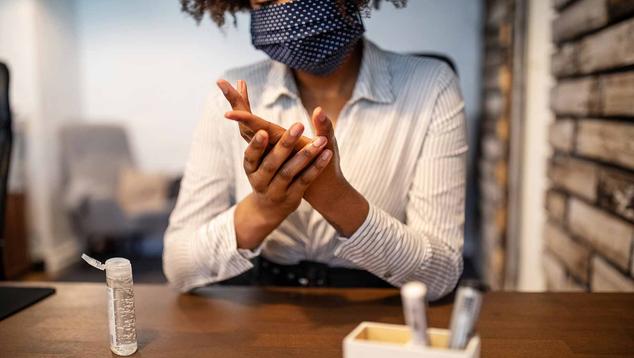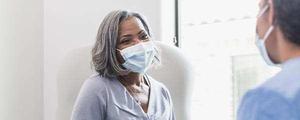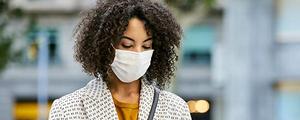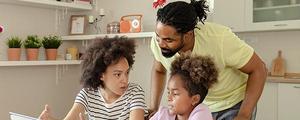Editor's Note: The research below was conducted in partnership between Franklin Templeton and Gallup.
Research from the Franklin Templeton-Gallup Economics of Recovery study shows that individuals' confidence in their ability to protect themselves from COVID-19 is strongly linked to increased public consumption and activity, particularly for restaurants, hotels and air travel.
For unemployment to decrease and sustainable economic recovery to occur, Americans' confidence regarding COVID-19 must increase. As of the latest wave of study results (Oct. 1-9, 2020), about three in 10 Americans (29%) were "very confident" they could protect themselves from infection while in public. This study is conducted via an opt-in web panel. The sample has been adjusted statistically to ensure it represents key subgroups in their proper proportions of the U.S. adult population.
The level of confidence has decreased slightly since early September, as 17 states reached their highest point yet, and no states showed clear declines (as of Oct. 16).
Americans' Perceptions of COVID-19 Risk
While somewhat counterintuitive, a key finding from Gallup's principal economist, Dr. Jonathan Rothwell, and Dr. Christos Makridis of Arizona State University is that local infection rates have little impact on Americans' attitudes and behaviors regarding the virus. Instead, individuals' perceptions of risk are largely fixed, depending on their partisan leanings, age and race, while public behavior is shaped by local policies, such as mask mandates and restrictions on bars and restaurants.
For the most part, Americans' confidence to protect themselves from COVID-19 is strongly linked to their level of concern over the virus. To capture those with a high degree of concern, Gallup data analysts combined two metrics from the two most recent survey waves: individuals who are "very worried" about dying if they contract the virus and believe the coronavirus situation is "getting a lot worse" in the U.S. Overall, 11% of Americans are highly concerned.
As expected, compared with Republicans, Democrats express significantly higher levels of concern about COVID-19 and lower levels of confidence about protecting themselves. With respect to age, the level of concern is consistent among all groups -- largely a result of younger Americans significantly overestimating their mortality risk from the virus -- while the oldest Americans are the least confident of any group about protecting themselves.
Notable outliers to this relationship include Black and Hispanic respondents, as well as people making less than $24,000 per year. Black participants have greater levels of concern about the virus compared with Hispanic, Asian and White participants, yet they also indicate the highest level of confidence in protecting themselves. Black respondents' concern is understandable, given that they have the highest COVID-19 mortality rates in the U.S. It is estimated that 1 in 920 Black Americans have died of COVID-19 (through mid-October). Hispanic respondents also indicate substantially higher rates of confidence compared with White and Asian respondents, despite having higher levels of coronavirus mortality (1 in 1,360).
Respondents making less than $24,000 are at least twice as likely as any other income group to be unemployed or laid off and looking for work. This group reports relatively high levels of concern and confidence, with the latter potentially being linked to their desire for employment.
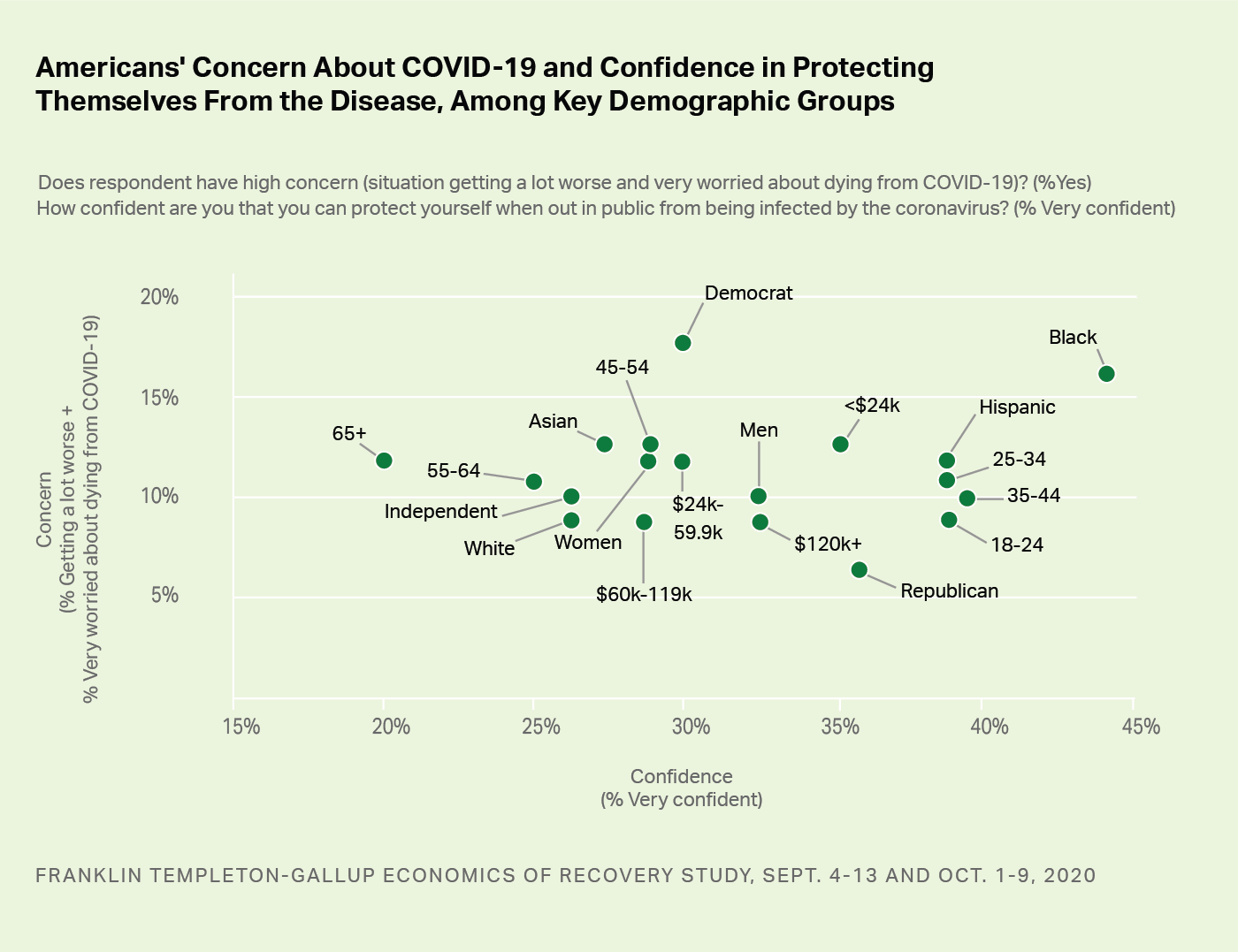
Scatterplot. Americans' concern about dying from COVID-19 and their confidence in protecting themselves from the disease among key demographic groups. The oldest Americans, those aged 65 and older, have the lowest level of confidence in protecting themselves but have similar levels of concern versus most other age groups about dying from the disease. Alternatively, Black Americans have both high levels of concern and confidence in protecting themselves from the disease.
Within key demographic groups, there are a number of notable differences.
-
Black women are just as confident as Black men about protecting themselves, and are the only group equal to their male counterparts in this regard.
-
White women are less concerned compared with other women, with the greatest difference seen between White and Black women. White women express about half the level of concern -- and confidence -- compared with Black women.
-
White respondents earning less than $24,000 per year are much less confident than Black and Hispanic respondents at the same income level (the sample size for the Asian counterpart group is too small to be included in this analysis).
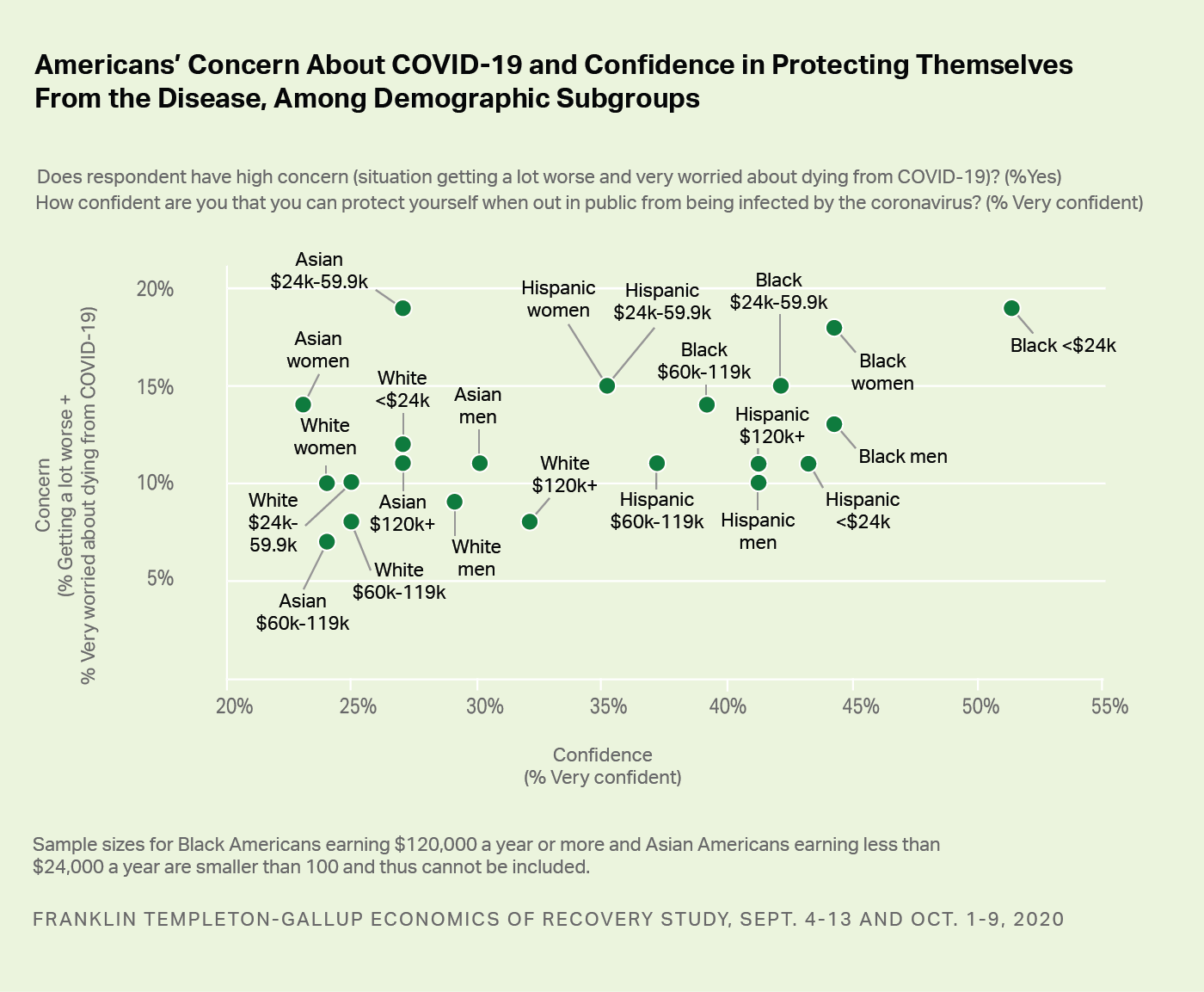
Scatterplot. Americans' concern about dying from COVID-19 and their confidence in protecting themselves from the disease among demographic groups. Asian Americans making between $60,000 and $119,000 a year have some of the lowest levels of confidence in protecting themselves and concern about dying from the disease. Alternatively, Black Americans who earn less than $24,000 a year have both high levels of concern and of confidence in protecting themselves from the disease.
Implications
If Americans' confidence in their ability to prevent contracting COVID-19 is key to the nation's economic recovery, the multitrillion-dollar conundrum may be, "How can we create more confidence?" State and local mask mandates have strong linkages to increased confidence, particularly among Republicans. However, even then, only about three in 10 Americans are extremely confident, generally, that they can protect themselves. If responsible confidence cannot be built among Americans with public health messaging about how to protect oneself, sustained economic recovery likely hinges on the development, distribution and uptake of a vaccine.
To receive ongoing updates about findings from the Franklin Templeton-Gallup Economics of Recovery Study, please sign up here. To learn more about the study, please visit this page.
